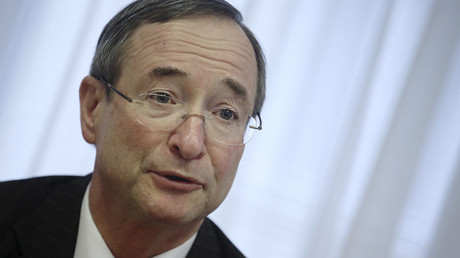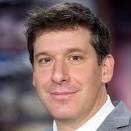As the international headlines were recently overwhelmed by the leak of, and analysis of, the Panama Papers, the ceasefire in Ukraine continues to be fragile.
As reported yesterday,
 "According to the press center of the Ukrainian Armed Forces, as
of 18:00 local time, Ukrainian positions had been fired on 32 times on
Wednesday, Interfax reported.
"According to the press center of the Ukrainian Armed Forces, as
of 18:00 local time, Ukrainian positions had been fired on 32 times on
Wednesday, Interfax reported.
"During the day the intensity of the use of weapons by Russian militants against Ukrainian soldiers was high in the zone of the ATO [Donbas region] where 32 cases of ceasefire violations were recorded,” the press center reported on its Facebook page.
15 attacks were recorded around Avdiivka, where Ukrainian positions came under mortar and small arms fire" (Uawire : Wednesday, April 13, 2016) (my emphasis)
Underlining this continuous ceasefire violations by Putin's Russian soldiers and rebel proxies in eastern Ukraine,
"Russia has announced it will now form a new paramilitary fighting force, the National Guard, which can effectively be used for non-conventional warfare if need be. This comes as the Russian Federation is heavily involved in ongoing conflicts in both Ukraine and Syria among other countries." (Chris Tomson : AMN : 09/04/2016) (my emphasis)
This National Guard will be directly answerable to Putin himself, and will become a substitute for the current Russian soldiers fighting in eastern Ukraine. This para-military force is indistinguishable from the Russian armed forces, as was the case during the Chechen wars, primarily to make their presence less controversial than his Russian soldiers now active in eastern Ukraine.
This new para-military force of Putin's also signifies a growing anxiety of Putin and his kleptocratic 'siloviki' clique about the growing discontent among the Russian people because of their increasing impoverishment as the Russian economy continues on its downward spiral. (cf:
As reported by Jim Atkins,
 "The World Bank says 19.2 million from a population of 143.8 million now live in poverty – just over 13% of the population.
"The World Bank says 19.2 million from a population of 143.8 million now live in poverty – just over 13% of the population.
The reason, according to the report, is the country is in decline for two main reasons:
Meanwhile, on the Ukrainian front, Turkey and Ukraine are deepening their economic and scientific co-operation.
 "Turkey and Ukraine have agreed to share technology in order to jointly
develop and build satellites, Turkish military officials said....
"Turkey and Ukraine have agreed to share technology in order to jointly
develop and build satellites, Turkish military officials said....
...
A military official said the memorandum of understanding also involves cooperation to advance aerospace industry work in the future.
“We are pleased to observe that Ukraine is keen to share and develop technology with a NATO member state,” a Turkish procurement official said. “We think we can efficiently cooperate in developing international [NATO] standard systems.” (Defense News :

13 Apr, 2016) (my emphasis)
 A few days ago Austrian business leader Christoph Leitl (left) criticized
anti-Russian sanctions, saying they had proved unsuccessful. Leitl said
Russia with its raw materials and Europe with its expertise would
complement each other perfectly." (RT : 6 April, 2016) (my emphasis)
A few days ago Austrian business leader Christoph Leitl (left) criticized
anti-Russian sanctions, saying they had proved unsuccessful. Leitl said
Russia with its raw materials and Europe with its expertise would
complement each other perfectly." (RT : 6 April, 2016) (my emphasis)
 The Austrian President, Heinz Fischer (right), also had this to say whilst recently meeting with State Duma Speaker Sergei Naryshkin in Moscow.
The Austrian President, Heinz Fischer (right), also had this to say whilst recently meeting with State Duma Speaker Sergei Naryshkin in Moscow.
"I always say that sanctions are disadvantageous for both sides," Fischer said at Wednesday’s meeting with Russia's State Duma Speaker Sergey Naryshkin. "It is important to find a way to lift them in the near future." (RT : 6 April, 2016) (my emphasis)
And whilst German industry and the Austrian president want EU sanctions against Russia to be removed,bothe Canada and the US want sanctions against Russia to be increased.
 "Canadian Foreign Affairs Minister Stephane Dion (left) says Canada insists that collective sanctions against Russia either be
maintained or strengthened, according to portal Macleans." (UT : Mar. 29, 2016) (my emphasis),
"Canadian Foreign Affairs Minister Stephane Dion (left) says Canada insists that collective sanctions against Russia either be
maintained or strengthened, according to portal Macleans." (UT : Mar. 29, 2016) (my emphasis),
whilst,
"The U.S. plans to search the millions of documents leaked from a Panamanian law firm for information about people who may have helped companies or individuals evade sanctions related to Russia's role in destabilizing Ukraine, a person familiar with the matter said.
......
 The [US] Treasury could release a new list [of sanctioned Russian individuals close to Putin] as early as June, which would
coincide with the expected timing of the next vote by European Union
countries on whether to extend their sanctions against Russia, matching
the coordinated timing of the last two expansions." (Alan Katz (right): Bloomberg : April 6, 2016) (my emphasis)
The [US] Treasury could release a new list [of sanctioned Russian individuals close to Putin] as early as June, which would
coincide with the expected timing of the next vote by European Union
countries on whether to extend their sanctions against Russia, matching
the coordinated timing of the last two expansions." (Alan Katz (right): Bloomberg : April 6, 2016) (my emphasis)
Putin may have somewhat tried to cover his tracks by hiding the money that he stole from the Russian people, using his 'kleptocratic cabal' from his days in St. Petersberg in the 1990's, and behind which he now conceals himself as the ultimate owner of all those stolen billions of dollars.
But the tangled web of deception that he has tried to weave is now beginning to unravel itself.
As reported yesterday,
"During the day the intensity of the use of weapons by Russian militants against Ukrainian soldiers was high in the zone of the ATO [Donbas region] where 32 cases of ceasefire violations were recorded,” the press center reported on its Facebook page.
15 attacks were recorded around Avdiivka, where Ukrainian positions came under mortar and small arms fire" (Uawire : Wednesday, April 13, 2016) (my emphasis)
Underlining this continuous ceasefire violations by Putin's Russian soldiers and rebel proxies in eastern Ukraine,
"Russia has announced it will now form a new paramilitary fighting force, the National Guard, which can effectively be used for non-conventional warfare if need be. This comes as the Russian Federation is heavily involved in ongoing conflicts in both Ukraine and Syria among other countries." (Chris Tomson : AMN : 09/04/2016) (my emphasis)
This new para-military force of Putin's also signifies a growing anxiety of Putin and his kleptocratic 'siloviki' clique about the growing discontent among the Russian people because of their increasing impoverishment as the Russian economy continues on its downward spiral. (cf:
As reported by Jim Atkins,
 "The World Bank says 19.2 million from a population of 143.8 million now live in poverty – just over 13% of the population.
"The World Bank says 19.2 million from a population of 143.8 million now live in poverty – just over 13% of the population.The reason, according to the report, is the country is in decline for two main reasons:
- The stranglehold of international sanctions following Russia’s annexation of The Crimea and continuing military action against The Ukraine
- A hit from falling oil prices – Russia is one of the world’s major producers and has seen revenues plunge on the international markets" (iexpats : April 8, 2016) (my emphasis) (cf. also:
Whilst Putin is preparing his new National Guard to suppress the Russian people from revolting against their growing impoverishment, Russian truckers have not yet ended their strike against increased taxes against them.
 "Turkey and Ukraine have agreed to share technology in order to jointly
develop and build satellites, Turkish military officials said....
"Turkey and Ukraine have agreed to share technology in order to jointly
develop and build satellites, Turkish military officials said.......
A military official said the memorandum of understanding also involves cooperation to advance aerospace industry work in the future.
“We are pleased to observe that Ukraine is keen to share and develop technology with a NATO member state,” a Turkish procurement official said. “We think we can efficiently cooperate in developing international [NATO] standard systems.” (Defense News :

13 Apr, 2016) (my emphasis)
 A few days ago Austrian business leader Christoph Leitl (left) criticized
anti-Russian sanctions, saying they had proved unsuccessful. Leitl said
Russia with its raw materials and Europe with its expertise would
complement each other perfectly." (RT : 6 April, 2016) (my emphasis)
A few days ago Austrian business leader Christoph Leitl (left) criticized
anti-Russian sanctions, saying they had proved unsuccessful. Leitl said
Russia with its raw materials and Europe with its expertise would
complement each other perfectly." (RT : 6 April, 2016) (my emphasis) The Austrian President, Heinz Fischer (right), also had this to say whilst recently meeting with State Duma Speaker Sergei Naryshkin in Moscow.
The Austrian President, Heinz Fischer (right), also had this to say whilst recently meeting with State Duma Speaker Sergei Naryshkin in Moscow."I always say that sanctions are disadvantageous for both sides," Fischer said at Wednesday’s meeting with Russia's State Duma Speaker Sergey Naryshkin. "It is important to find a way to lift them in the near future." (RT : 6 April, 2016) (my emphasis)
And whilst German industry and the Austrian president want EU sanctions against Russia to be removed,bothe Canada and the US want sanctions against Russia to be increased.
whilst,
"The U.S. plans to search the millions of documents leaked from a Panamanian law firm for information about people who may have helped companies or individuals evade sanctions related to Russia's role in destabilizing Ukraine, a person familiar with the matter said.
......
Putin may have somewhat tried to cover his tracks by hiding the money that he stole from the Russian people, using his 'kleptocratic cabal' from his days in St. Petersberg in the 1990's, and behind which he now conceals himself as the ultimate owner of all those stolen billions of dollars.
But the tangled web of deception that he has tried to weave is now beginning to unravel itself.
(to be continued)
No comments:
Post a Comment